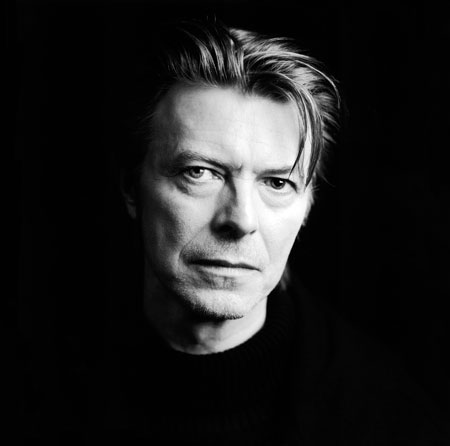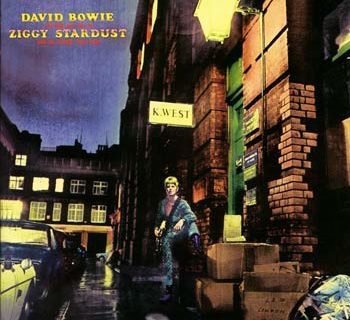David Bowie-Blackstar Review
How do you write a review for an elegy written by the deceased?
This is going to be a tough one. So I’m going to start with my opinion at this time: this is a great album that I do not like very much…yet.
I'll try to refrain from a general level of sarcasm as a matter of respect. But talking about the music on this album is going to be as tough as, well, generally assessing the quality of the album as a whole without the context surrounding it. I will not be awarding a score for Blackstar, because I think attaching a number to what amounts to a musical statement of intent for death would be shallow and meaningless.
First, I need to say something about David Bowie himself: I’m grossly ambivalent about everything he has done collectively; I love a lot of his work and I also really dislike a great number of other things. His persona never bled into my life too profoundly and I was generally a sarcastic punk about his later work. So the fact that I managed to weep at his death was somewhat a surprise. Well, maybe not that surprising.
I, only somewhat fortunately, have the benefit of 20/20 hindsight in reviewing this album. There is something romantic and small in the notion of what Bowie’s trying to do; it also speaks to the fact that no matter who you are, death is fucking terrifying.
This album – with its very sui generis mix of jazz and rock – is an attempt at Agency in what ultimately amounts to the greatest power stealer of all: mortality.
This album is rancid with the knowledge of death, and the struggle for acceptance – but also for control; Bowie doesn’t want to go out like TS Elliot's "Hollow Men" "Not with a bang but a whimper," he wants to go out on his own terms. This album – with its very sui generis mix of jazz and rock – is an attempt at Agency in what ultimately amounts to the greatest power stealer of all: mortality.
And, it is a struggle for me to listen to, personally. The sounds are of decay, and knowledge of imminent demise. I can feel Bowie’s need to express his knowledge of his death – his desire to share with people that it’s coming – but also the need to not openly express it. The album sits in this quiet middle ground – an ambivalence.
My relationship to Bowie’s music, and Bowie himself is in a constant state of flux. I love a great many albums he has recorded, but never been overly devoted, like many people I know. I have very strong attachments to his music, but they are very minor in the tapestry of my musical history.
And so it is with this record, which is a concise statement of his love of music. Tracks like “Blackstar” and “'Tis a Pity She Was a Whore” represent polar ends of the spectrum he always occupied, which was his own. The former a wandering Jazz lament, a vision of his future and his past. His celebration of deviance in the face of the cosmos. "'Tis a Pity She Was a Whore " is almost a Lou reed song. Each of the seven tracks are thought out, arranged carefully, and have a jarring beauty that makes listening to the entire album one of the hardest listens I’ve ever had.
But, as can be said, it represents Bowie for his greatest strength: Himself.
I respect Bowie purely by virtue of that force of will, and that need to be himself regardless of extenuating circumstances. That overt and profound desire to do what needs doing; whether that means dressing in drag, becoming another person entirely, or recording free-jazz. Or, in some cases, looking death in the face.
Ultimately, what's so admirable about his spirit of independence is what makes this album so powerfully sad: even with the idea and expression of agency, still, he had little control over what could be done. And so he let himself fall. It is admirable and beautiful and utterly tragic. The final track, "I Can't Give Everything Away" – harkening back to his early days, feels like a beautifully elegiac testament to both his sadness and his power.
And so, I don’t like this album yet. But I know I will. Opinions are rarely consistent, and always changing. In coming months, I'll be reviewing Bowie’s body of work via my larger musical project of reviewing 3000 albums, a list in which he is more than adequately represented.
R.I.P. David Bowie, the space oddity, Ziggy, the Rock n’ Roll Suicide.












